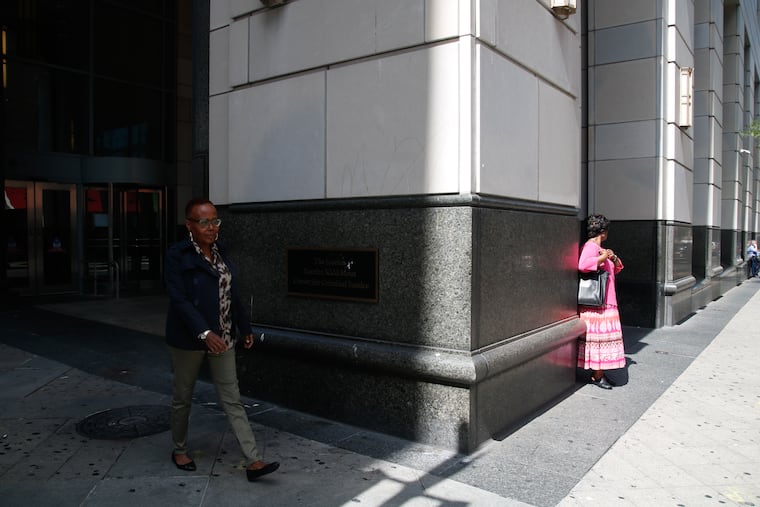Philly’s ban on recording bail hearings is unconstitutional, federal judge says
A judge agreed with the Philadelphia Bail Fund, finding that current practices are “unconstitutional under the First Amendment insofar as they prohibit the public to audio-record bail hearings.”

Philadelphia’s court administration, the First Judicial District, has already agreed to major changes in how it handles bail hearings, in response to a lawsuit filed with the state Supreme Court last year on behalf of the Philadelphia Community Bail Fund and a group of defendants who could not afford their bail.
Now a second lawsuit — this one filed in federal court by another local bail fund, the Philadelphia Bail Fund — will require one more change: The court will have to begin transcribing or recording those hearings, known as preliminary arraignments, or else allow the public to make their own audio recordings.
Judge Harvey Bartle III, of the Eastern District of Pennsylvania, granted summary judgment to the fund, agreeing that current practices are “unconstitutional under the First Amendment insofar as they prohibit the public to audio-record bail hearings.”
A spokesperson for the First Judicial District did not immediately respond to a request for comment on the decision or how the court will respond.
The ruling allowing sunlight into the basement courtroom where preliminary arraignments are conducted could be an important step, according to Nicolas Riley, of Georgetown University Law Center’s Institute for Constitutional Advocacy and Protection, which filed the lawsuit along with a similar claim out of Allegheny County.
“What you see happen on a national level over the past 30 to 40 years is that, as the technologies have evolved and as more and more courts have allowed the public to have access to their own recordings, Pennsylvania has become an outlier in terms of how restrictive the terms of recording in court are,” he said. “The importance of this ruling is that, if you see judges getting comfortable with the idea, it really can translate into other types of proceedings.”
The Philadelphia Bail Fund’s interim director, Malik Neal, said that the group has sought to document the practices of arraignment court magistrates, and that access to recordings will enable the group to make that research more accurate and complete. It will also, he said, allow them to monitor the reforms that have been outlined and to ensure those promises are being fulfilled.
Bail funds’ primary purpose is to crowdfund bail for those who cannot afford to pay for release pretrial. But Neal said it’s not surprising that the funds have, in a short time, succeeded in moving the needle on systemic reforms.
“The bail funds are able to really every day see the real injustices of the system through our work,” he said. “It really pushes us every day to push for more changes and to make our system more just.”